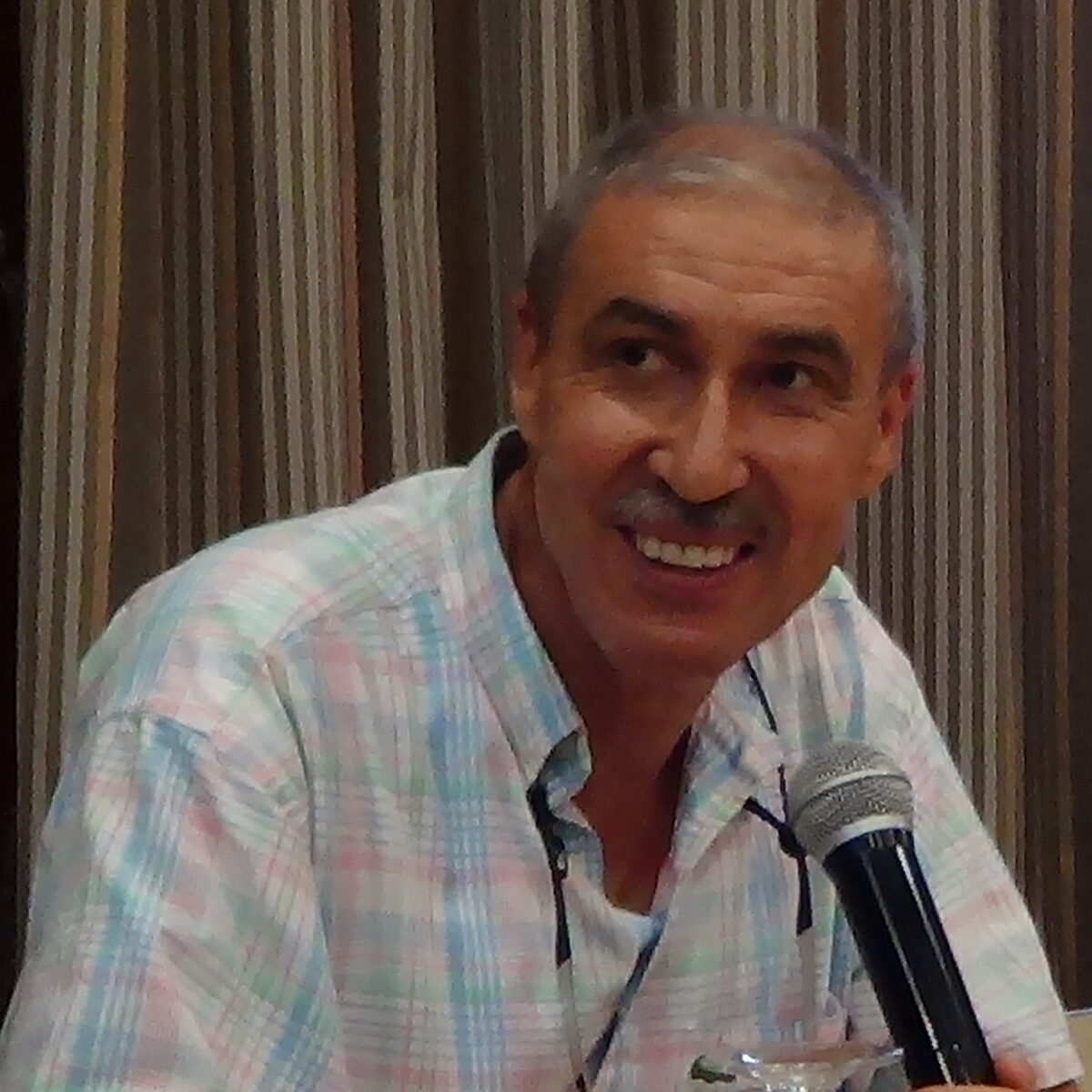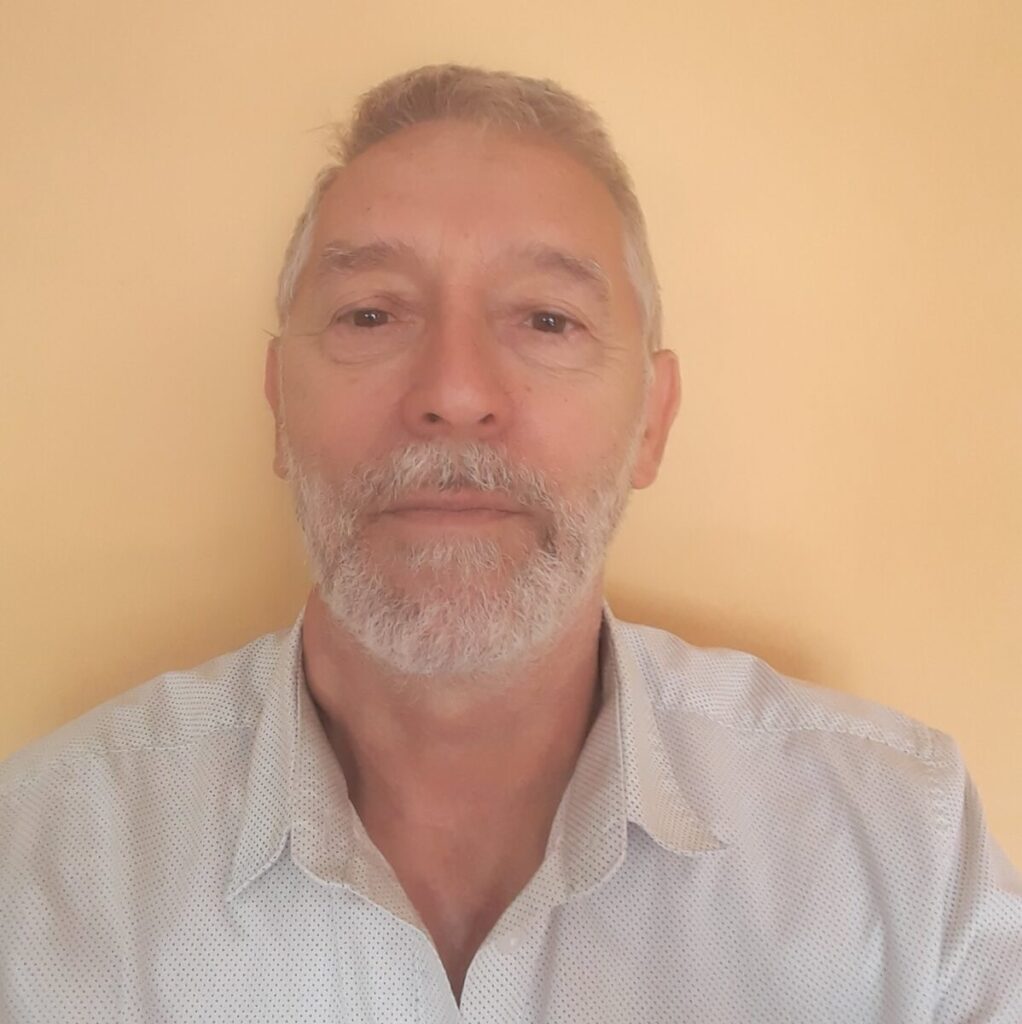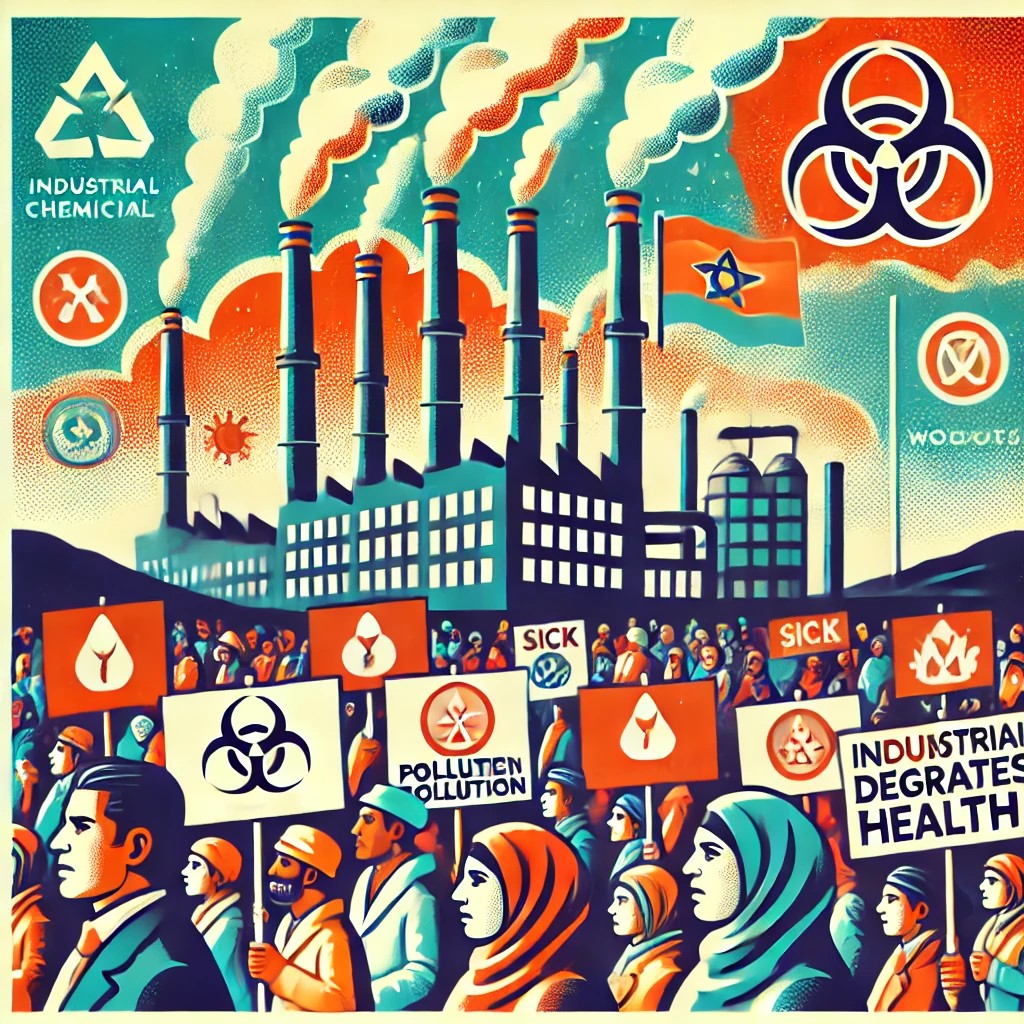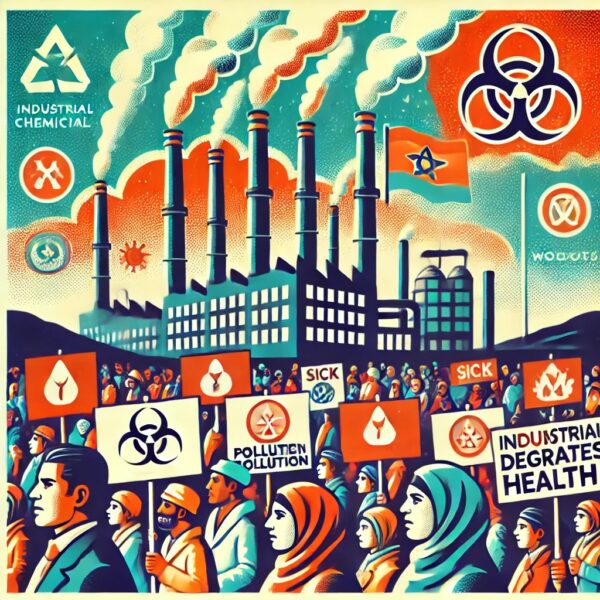Sfax, "the capital of the South" has experienced a continuous decline since the 1980s, caused by multiple factors: globalization, the flight of economic and cultural elites to the Capital or abroad, the shift to a service economy... but one of the determining causes is the degradation of the quality of life due to industrial pollution - particularly chemical - despite citizen mobilization since 1980 and especially after the revolution of 2011.
Sociologist and ecological activist from Sfax, Fethi Rekik analyzes this exemplary case with the perspective of a scientist and testifies to this difficult struggle with the commitment of a citizen, in a dialogue with Bernard Mossé, historian, Research, Education Training manager of the NEEDE Mediterranean association.
# 3 Sfax: the economic and environmental damage of industrial pollution
Bernard Mossé: What are the obstacles to implementing a policy that would give new momentum to the city of Sfax?
Fethi Rekik: First, there is a difficult relationship with the state, and for a long time. Sfax has not generated national-level policies, unlike the Sahel region or, of course, the capital. The development model has always been oriented towards these regions, since Independence, government policy has genuinely gone in this direction. Politicians and researchers justify this by historical factors and sometimes even natural handicaps, but it often came at the cost of denying the natural and cultural wealth of the inland regions. The fall of the former regime[1] is largely an expression of the feeling of hogra (contempt) and economic and political marginalization, which is very important. Geographically, the governorate of Sfax does not belong to these regions, politically it does, at least that is what emerges from the arguments of its active economic and cultural elite in civil society and/or engaged in political parties or even more from the writings of these academics[2].
Bernard Mossé: Isn't there also a responsibility of the Sfaxiens themselves in these obstacles?
Fethi Rekik: Capital has no feelings. Sfaxiens businessmen, like all other businessmen, settle where their interests lie. And this is even more true in the era of the new spirit of capitalism that venerates mobility as both an end and a means.
Bernard Mossé: Are you referring to the book by Luc Boltanski and Eve Chiapello, to the critique of capitalism through "projects" involving flexibility, mobility, and adaptation?
Fethi Rekik: Yes, of course. But it is not a critique; it is rather a characteristic. I already told you about this president of the Sfax football club who, through his son, does business in Tunis and even belongs to the rival club, Espérance de Tunis... capital invests in Tunis or in the Northeast of Tunisia, but not in Sfax, which is a polluted site.
This explains why the coastal development project, Taparura, on the northern side of Sfax, for which the development plan was created, I would say, more than ten years ago, has not found an investor. This is a project that resembles the major redevelopment projects along the shores of Lake Tunis, Lac 1 and Lac 2. The state has a responsibility. But there is also the site, with an environment that is not clean. So, the site of Sfax South needs to be decontaminated (the SIAPE being closed, but its damage still remains). Without decontaminating this site, who would agree to invest in Taparura?
Bernard Mossé: This is indeed about creating a tourist area?
Fethi Rekik: Not just that. The Taparura project includes hotels but also a large sports complex, cinemas, a cultural center, a seaside promenade for the citizens, it is practically a city...
So it is not solely the fault of the Sfaxiens, because until now there are no real prerogatives of a decentralized local power. Also, the UGTT union is accused of opposing the closure of the SIAPE, and then not supporting the idea of transforming its site into a clean economic development hub. It must be said, but this is not unique to Sfax, that some companies have moved to Morocco because there, there is no union. After the revolution, foreign entrepreneurs preferred to go elsewhere abroad, not only to escape unionism but because the conditions there are better and therefore attractive. And this particularly concerns Sfax.
Bernard Mossé: Can you now describe more precisely the consequences of industrial pollution in Sfax, particularly chemical pollution?
Fethi Rekik: Yes, of course. During the period when I was active in the APNES, in the 1990s and early 2000s, we produced tons of study papers. Academics from the faculty of sciences and doctors demonstrated the great harmfulness of factories on health; we established the link, for example, between the number of cases of serious illnesses and pollution. We even highlighted the radioactivity of phosphate extensively. And you know that there are spoil heaps, mountains of gypsum along the coast by the sea.
In the case of phosphogypsum left by the NPK, the Taparura development plan found a solution: we set up a sort of giant roundabout of 50 hectares, covered it and put grass, water.... It has become a green area... I don't know if you have seen this circle whose image appeared in the Taparura project of 420 hectares. We buried the mountain of gypsum in the project itself and covered it with plants. There you go, it has become a sort of park. Well, apparently, it is not harmful, for now!
To the south of the city, the mountains of phosphogypsum are still there and consequently, there is a huge problem for the environment, of course, because it is radioactive. From a health perspective, it is serious because it is often dumped into the sea. The entire area known as Sfax South is impacted over a radius of 15 to 20 kilometers. This region, around the Roman city of Thyna, is full of natural wealth that has been damaged by the phosphogypsum coming from all forms of waste from the SIAPE. And you can imagine the quality of the fish: we can no longer fish there, of course, even though we notice this summer that people are starting to swim there, but I am sure it will take time to evacuate the pollution from the surroundings of the SIAPE.
Bernard Mossé: Has civil society taken up the issue of decontamination?
Fethi Rekik: Yes, civil society has taken it up. We are demanding the decontamination of the SIAPE site. There are still and always reticences from the central power. It has no money and is not ready to decontaminate the site, taking the pretext that it is the property of the chemical group. As if the chemical group were not the property of the state! The state claims that it is enough to pursue industrial activities that are not polluting. Which remains to be verified...
So civil society is mobilizing on several issues:
- First, the "wetland". It is an extraordinary area to acquire and enhance within the framework of ecological tourism, very well known with migratory birds of different species: it is a RAMSAR site (a wetland of international importance with species to protect) and benefits from the commitment of the association Friends of Birds[3].
- A nearby park, dating back several decades, to maintain
- also salt flats to preserve but whose occupied area can be reduced.
- Above all, there is the project to transform the 210-hectare site into a sort of research and start-up center. The associations defend this project by advancing the argument that the University of Sfax is still among the top two in Tunisia, and its laboratories[4] are among the initiators of partnerships for international research projects. Furthermore, the University has about twenty higher education institutions including the Faculty of Sciences, the Faculty of Medicine, engineering schools in biotechnology, telecommunications, computer science, multimedia... these are impressive places full of laboratories and constantly fed by high school graduates from all governorates of the country, particularly from Sfax, which has occupied the first rank for over half a century in terms of baccalaureate results at the national level.
The idea of this center is a conversion project that would allow, once the SIAPE site is decontaminated, to energize the region by engaging it on the path to a clean economy, and which would fit into a real metropolitan project. Unfortunately, this does not seem to be the path being taken.
[1] It is no coincidence that the inhabitants of the inland regions approve the President's decision to designate the date of the revolution as December 17, 2010 – the date of Mohamed Bouazizi's self-immolation in Sidi Bouzid – and not January 14, 2011, the day of Ben Ali's fall caused by the protests in the Capital.
[2] Taoufik Meghdiche, "the relations of Sfax with Southern Tunisia: some elements of reflection", Review of University Research, no. 8, 2010, pp. 41-61.
[3] On the website of this association, Sfax section, a publication dating from December 2012 can be read: 1st element of the ecotourism project for the Thyna Wetland:
"Eco-museum: To be preferably realized near the urban park, archaeological site, and Aïn Fallet area but within the ZHT where the large gathering basins of birds are located: Pink Flamingos, Elegant Avocets, Little Egret, other herons, and large colonies of Black-headed Gulls. It would provide visitors with all information related to the birds of Thyna and allow close observations through fixed telescopes, as well as other services (refreshments, sandwiches, association office),”
[4] The University of Sfax has, in 2024, 110 research structures including 85 laboratories. It can be credited with 6 H2020 projects, 88 Erasmus+, 33 Erasmus 2+, 23 Tempus, etc.
Biographies

Fethi Rekik is a professor (HDR) of Higher Education and Scientific Research and director of the research laboratory 'State, Culture and Social Changes' at the Faculty of Letters and Human Sciences of Sfax, Tunisia. He has also been an ecological activist in his city of Sfax since the 2000s.

Bernard Mossé Historian, Research, Education, Training manager of the NEEDE Mediterranean association. Member of the Scientific Council of the Camp des Milles Foundation – Memory and Education for which he was the scientific manager and coordinator of the UNESCO Chair "Education for Citizenship, Human Sciences and Convergence of Memories" (Aix-Marseille University / Camp des Milles).
Bibliography:
Salem DAHECH and Fethi REKIK, "Road traffic and noise pollution in Sfax (Southern Tunisia): a multidisciplinary study". Review of Atmospheric Pollution, no. 3, 2012.
Amor BELHEDI, "Regional disparities in Tunisia. Challenges and stakes", pp.7-62 in The Conferences of Beit al-Hikma, 2019, 2017-2018, 194p + 112p in Arabic. Coll. Conferences, no. V.
Ali BENNASR, "Sfax: from regional city to metropolitan project". University Publishing Center. Globalization and urban change, pp.79-95, 2010.
Fethi REKIK, "Environment and Sustainable Development between the global and the local, case of the Kneïss islands", Review CERES, no. 132, 2006
Taoufik MEGHDICHE, "the relations of Sfax with Southern Tunisia: some elements of reflection", Review of University Research, no. 8, 2010, pp. 41-61.

From this conversation, the AI generated a flow of illustrations. Stefan Muntaner fed it with editorial data and guided the aesthetic dimension. Each illustration thus becomes a unique work of art through an NFT.
